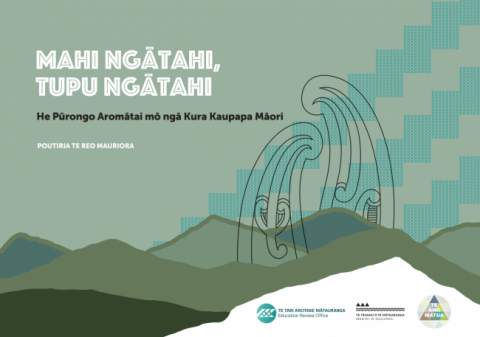Āhuru Mōwai, Evaluation report for Te Kōhanga Reo
Published: 29 Nov 2021
This report is the reflection of Kōhanga Reo on their particular educational approach. Their collective aspirations are captured within the summary of conditions outlined as Whanaungatanga, Strategy, Tikanga Māori, Te Reo Resurgence, Kaumātua, Ako: Teaching and Learning, and Leadership.
- Audience:
- Māori-medium
- Content type:
- Research
- Topics:
- Kōhanga Reo
- Te Kōhanga Reo





